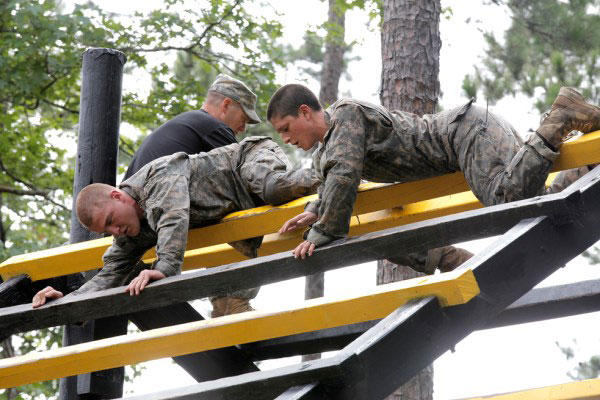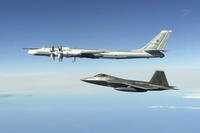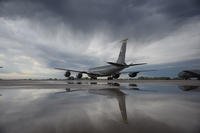The performance of the two women who passed U.S. Army Ranger School bolstered the case for opening up more direct-action combat jobs to women, including infantry and special operations, advocates say.
Even before the Army officially announced Monday that the two women had passed, Navy Adm. Jonathan Greenert, who will retire soon as chief of naval operations, said the service's elite SEALs may soon be open to women who can meet the standards of the demanding training.
On a farewell visit to San Diego Monday, Greenert said he had been briefed on the preliminary findings of the Coronado Naval Special Warfare Command's study on whether women should be accepted into the SEALs.
"I see no reason (not) to say: 'Here are our standards. Who wants to be a SEAL? You've got to meet the standards,'" Greenert told the San Diego Tribune. "Frankly, that's the path we are headed down, but we're not done yet."
Last week, retiring Army Chief of Staff Gen. Ray Odierno made similar remarks in stating that standards, and not gender, should be the guideline in qualifying for an MOS.
The two 20-something women who passed Ranger School, both officers and West Point graduates, have been identified as Capt. Kristen Griest, a military police officer from Connecticut, and 1st Lt. Shaye Haver, an Apache helicopter pilot from Texas, according to an article in The Washington Post. They've already changed the opinions of some involved in the Ranger course.
Related Video
Sgt. Major Colin Boley, the operations sergeant major for the Airborne and Ranger Training Brigade, told Foreign Policy magazine Monday that he was initially opposed to accepting women but the determination and performance of the two "have changed my mind."
"I didn't think that they would physically be able to bear the weight and I thought they would quit or get hurt, and they have proved me wrong," Boley said.
Similarly, the Army's top Ranger, Sgt. 1st Class Jeremy Lemma, who along with Sgt. 1st Class Timothy Briggs in April won the Best Ranger Competition at Fort Benning, Georgia, said he was initially opposed to women in the program but has since changed his mind.
"You got to ask yourself why you are saying, 'I don't think females should be in Ranger School,'" he told The Ledger-Enquirer newspaper. "Is it a pride thing? Do you feel that tab you have earned is less masculine now because females are now equal to you? "If that is the case, then that is you. You've got to look at yourself. Obviously, you are not comfortable with who you are. You feel intimidated. I think you have to question why you feel that way."
The female officers were allowed to go to Ranger School under a January 2013 order from then-Defense Secretary Leon Panetta. He directed that all military occupational specialties be open to those who qualify, regardless of gender, unless the service branches could provide detailed reasons on why they should be closed.
The service branches have been conducting studies on whether to open direct combat roles in the infantry, armor and artillery to women who were previously restricted under the Direct Ground Assignment Rule of 1994, according to Navy Capt. Jeff Davis, a Pentagon spokesman.
The services were expected to report this fall to Defense Secretary Ashton Carter on whether they will seek exceptions to opening up all specialties. Carter is expected to make his own recommendations in January.
Upon hearing that the two women had passed Ranger School, Panetta said he saw it as "proof that if we open up these opportunities to women that there are qualified women that can be able to engage in combat."
"I always believed that, without having to change the qualifications, that there were women who could live up to the same standards that we required of others to be able to become Rangers and to be part of Special Forces," the former defense secretary and longtime lawmaker told Foreign Policy.
Janine Davidson, a former Air Force pilot and assistant defense secretary for plans, said "there's no doubt women can do it." In a Council of Foreign Relations conference call with reporters, Davidson said that "attitudes can and will change" in the ranks among those now opposed to women serving in combat roles.
Gayle Tzemach Lemmon, an author who has written extensively on women in combat, said that women have already proven themselves in combat in Iraq and Afghanistan. Making better use of women was a "battlefield necessity rather than social engineering," she said.
By passing Ranger School, the two women will now merit wearing the Ranger Tab, but they will not necessarily be allowed to qualify for the 75th Ranger Regiment or have the special skill identifier code added to their MOS. That will depend on whether the Army decides to seek exceptions to opening up all specialties, and whether Carter approves of the exceptions.
--Richard Sisk can be reached at Richard.Sisk@military.com






























